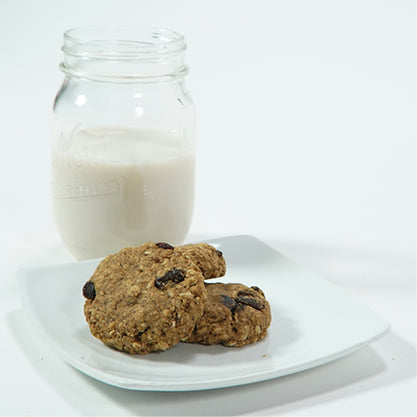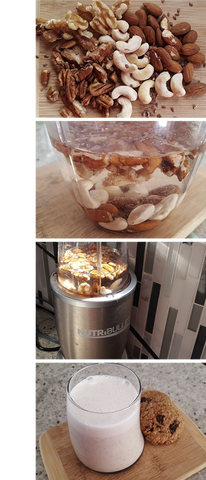It is really, really difficult to find a milk alternative that doesn’t add a bunch of chemicals to preserve and fortify. In general, we like the ingredients list of our packaged foods to include real nutrient-dense foods.
One brand we’ve found that does a good job of this is Malk. Their Unsweetened Almond Malk contains Organic Almonds, Himalayan Salt, and Filtered Water.
Other Alternatives
Not everyone can eat nuts, and if you’re one of those people – finding a milk alternative is going to be difficult for you. Like we said, pretty much all of the big name brand rice, coconut, soy, etc. milks have some dubious ingredients and more water than nutrients. If you absolutely must have a non-nut milk alternative, pick your favorite, but be sure to look at the ingredients and do your homework.
Nutrients
Many people drink milk for its calcium. No milk alternative really packs much of a punch there (although almonds aren’t half bad). But there are plenty of other nutrients you can get from them:
-
Walnuts. Excellent source of Omega 3’s, Vitamin E
-
Pecans. Excellent source of Vitamin E
-
Almonds. Good source of calcium and magnesium
-
Flaxseed. Excellent source of Omega 3’s, Vitamin E, and Thiamin
-
Rice. Great source of manganese
-
Coconut. Fiber! But also more calories and fat
-
Soybeans. In general, we suggest staying away from soy products. While soybeans are an excellent source of nutrients (and on par with dairy milk in regards to protein), most of them are now genetically modified. They are also a big strain on the environment, not to mention a top allergen.
If you’re looking for calcium, eat some dark leafy greens along with your milk and cookies. Let us know what you try! Snap a pic and share with us on social media.





